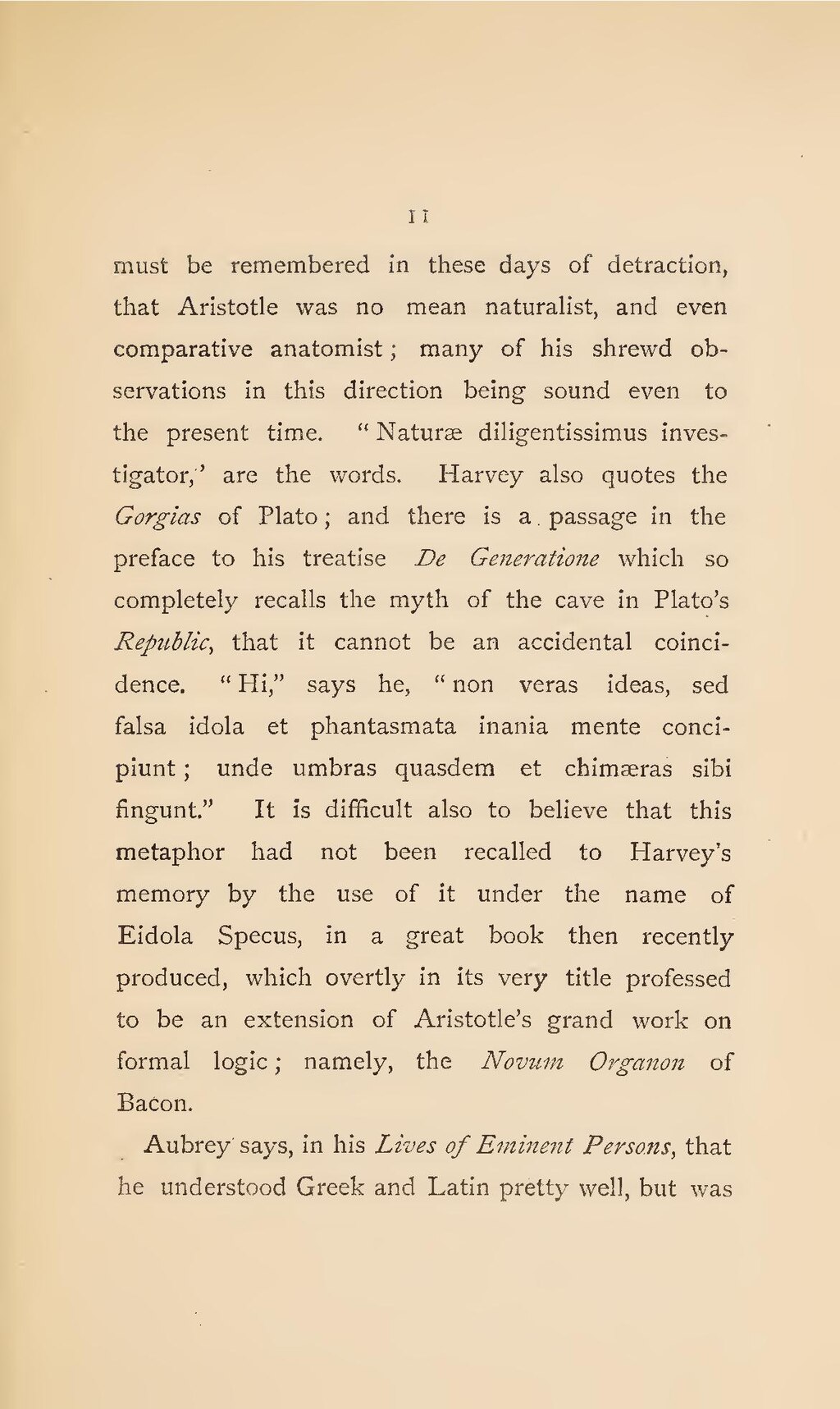11
must be remembered in these days of detraction, that Aristotle was no mean naturalist, and even comparative anatomist; many of his shrewd observations in this direction being sound even to the present time. “Naturæ diligentissimus investigator,’ are the words. Harvey also quotes the Gorgias of Plato; and there is a passage in the preface to his treatise De Generatione Aubrey says, in his Lives of Eminent Persons, that he understood Greek and Latin pretty well, but was which so completely recalls the myth of the cave in Plato’s Republic, that it cannot be an accidental coincidence. “Hi,” says he, “non veras ideas, sed falsa idola et phantasmata mania mente concipiunt; unde umbras quasdem et chimæras sibifingunt.” It is difficult also to believe that this metaphor had not been recalled to Harvey’s memory by the use of it under the name of Eidola Specus, in a great book then recently produced, which overtly in its very title professed to be an extension of Aristotle’s grand work on formal logic; namely, the Novum Organon of Bacon.
Aubrey says, in his Lives of Eminent Persons, that he understood Greek and Latin pretty well, but was
